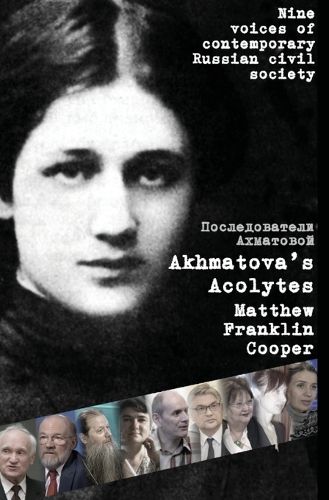Readings Newsletter
Become a Readings Member to make your shopping experience even easier.
Sign in or sign up for free!
You’re not far away from qualifying for FREE standard shipping within Australia
You’ve qualified for FREE standard shipping within Australia
The cart is loading…






There was a time, only decades ago, when American scholarship on Russia was widespread and serious. After the USSR fell, however, interest in the former communist power dried up. Serious scholarship was gradually squeezed out and replaced by predictable cliches.
It is against this background that Matthew Cooper's Akhmatova's Acolytes represents such a welcome and valuable gift. Cooper's erudite investigation of contemporary Russian thought surveys everything from theology and poetry, to economics, philosophy and sociology. To be sure, this is not a survey of the whole landscape; Cooper hones in on specific, sometimes little-known (in the West) Russian thinkers. This apparently narrow series of focal points, however, then expands out again as Cooper helpfully situates each writer within a rich landscape populated, firstly, by Russia's own storied intellectual heritage, and secondly, by Russia's engagement with Western thought. The result is a sometimes dizzying and challenging but always rewarding volume which in style and substance evokes, depending on the paragraph, Max Horkheimer, Hunter S. Thompson or Augusto Del Noce. - Paul R. Grenier President, Simone Weil Center for Political Philosophy
$9.00 standard shipping within Australia
FREE standard shipping within Australia for orders over $100.00
Express & International shipping calculated at checkout
There was a time, only decades ago, when American scholarship on Russia was widespread and serious. After the USSR fell, however, interest in the former communist power dried up. Serious scholarship was gradually squeezed out and replaced by predictable cliches.
It is against this background that Matthew Cooper's Akhmatova's Acolytes represents such a welcome and valuable gift. Cooper's erudite investigation of contemporary Russian thought surveys everything from theology and poetry, to economics, philosophy and sociology. To be sure, this is not a survey of the whole landscape; Cooper hones in on specific, sometimes little-known (in the West) Russian thinkers. This apparently narrow series of focal points, however, then expands out again as Cooper helpfully situates each writer within a rich landscape populated, firstly, by Russia's own storied intellectual heritage, and secondly, by Russia's engagement with Western thought. The result is a sometimes dizzying and challenging but always rewarding volume which in style and substance evokes, depending on the paragraph, Max Horkheimer, Hunter S. Thompson or Augusto Del Noce. - Paul R. Grenier President, Simone Weil Center for Political Philosophy